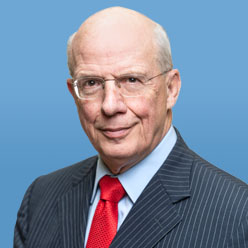Ukrainian government and the Russian-directed separatist movement occupying parts of two Ukrainian provinces and Crimea. Few expect it to last because neither side is ready to live with the status quo.
Ukraine needs to resume fighting to prevent Moscow from permanently controlling separatist-occupied Ukraine. Moscow needs to resume fighting to achieve its further territorial ambitions in Ukraine. Further, if Russian President Vladimir Putin is stopped in Ukraine, it will complicate his designs on the territory of Kazakhstan, Belarus, Moldova and other parts of the former USSR. How is this likely to play out?
Despite tough talk from the West, economic and military pressure sufficient to deter the Kremlin has yet to materialize. As a result, many in the West have sent signals that, having failed in its efforts to gain control over its sovereign territory, Kiev’s leadership will need to accommodate some of Moscow’s territorial ambitions. They reason that Ukraine’s lack of outside support makes its position untenable.
However, neither the mismatch in armaments nor the high casualties will stop Ukrainians from fighting. Polling data and public displays of patriotism show today’s Ukraine has embraced the 19th-century words that became the lyrics of its national anthem: “Ukraine’s glory and liberty have yet to die . We will sacrifice our body and soul for our freedom.”
Correspondingly, the Poroshenko government is preparing for a long fight. Factories are turning out winter clothing for Ukrainian soldiers. The country’s energy sector is working to get Ukraine through a winter that may be defined by the cutoff of Russian gas. Emphasis on energy efficiency, expanded production of nuclear energy, and greater production of Ukrainian oil and gas are all in the mix. Keeping the population warm and fed this winter is not an easy proposition, but the Ukrainian government appears determined to persevere.
Russia’s position, meanwhile, is less favorable than it looks. Mr. Putin was probably correct when he said Russia could take Kiev in two weeks. What then? Moscow would be forced to deal with increased international isolation, a long-term insurgency and the costs of keeping as many as 200,000 soldiers on Ukrainian soil — soldiers whose motivation to continue the fight would be increasingly in doubt. Soldiers who would invade Ukraine under orders would soon learn how much the Russian government has lied to them. Ukrainians are not fascists. Russian speakers are not threatened. As the facts emerge, will Russian soldiers be willing to fight on? Will Russian families wish to send their sons and brothers to die in Ukraine? More to the point, does Moscow really want to find out?
The long-term motivation of its soldiers is not Russia’s only weakness. Already reeling from massive capital flight, the country’s fragile economy cannot withstand a sharp reduction of European imports of Russian natural gas — especially if such a move is coupled with economic sanctions currently in place or under discussion. The effects of Western economic pressure will be felt more and more as time goes on.
Additionally, Russia’s adventurism in Ukraine could prove to be a shot in the arm for the various defense budgets and strategies of NATO countries. The alliance has declared plans for five new bases in Europe as a hedge against Russian aggression, and a new 5,000-man expeditionary force for the same reason. Russians are unlikely to view this buildup as a political victory, and the Kremlin may not have the economic clout to fund a response to such a challenge — especially since the cost of its war with Ukraine has already resulted in the cancellation of major domestic projects (among them a dam system to control annual flooding in Yukatia).
In short, if the West finds its nerve and staying power, an independent Ukraine — one that encompasses both Luhansk and Donetsk, but probably not Crimea — may survive. If the West continues in its current course of dithering and equivocation, though, it will not, and Russian troops may soon visit other now-independent countries.
Want these sent to your inbox?
Subscribe
